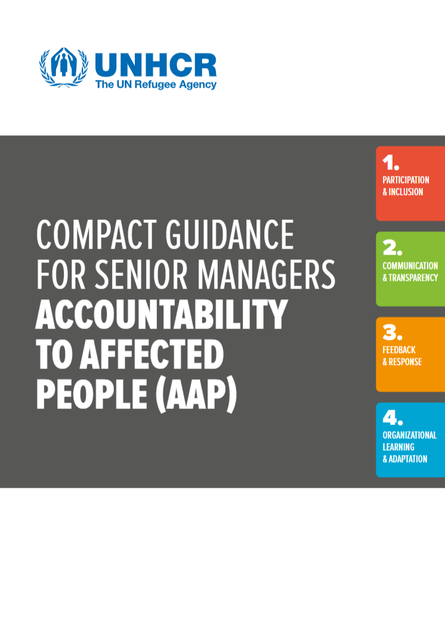
Accountability to affected people (AAP) is defined as an active commitment by humanitarian actors and organisations to use power responsibly by taking account of, giving account to, and being held to account by the people they seek to assist.1 It entails being answerable for the relevance, quality and impact of all protection and assistance services that persons of concern are entitled to throughout the operations management cycle. For UNHCR, the term “affected people,” which is common in inter- agency settings, translates in general terms to “persons of concern”. Collectively and individually, the Inter-Agency Standing Committee (IASC) and its member agencies, including UNHCR, have undertaken to advance AAP through the 2017 Commitments on Accountability to Affected People and Protection from Sexual Abuse, which focuses on the key areas of: leadership; information, feedback and action; participation and patnership; and, results. The objective achieved through actions in each of these areas is a partnership with the communities we work with for appropriate and better quality humanitarian programming. Furthermore, after having coordinated the IASC Task Team on Accountability to Affected People and Protection from Sexual Exploitation and Abuse, UNHCR has been co-chairing the IASC Results Group 2 on Accountability and Inclusion since its creation in 2019. UNHCR also supports the 2015 Core Humanitarian Standard on Quality and Accountability, which sets out nine commitments that organisations and individuals involved in humanitarian response can use to improve the quality and effectiveness of the assistance they provide. It is critically important to understand the diversity in persons of concern in order to provide the best possible assistance and protection, without undermining their existing capacities. In this regard, UNHCR situates AAP within the broader protection work of the organization and is mindful of the need to consistently review and improve accountability systems.